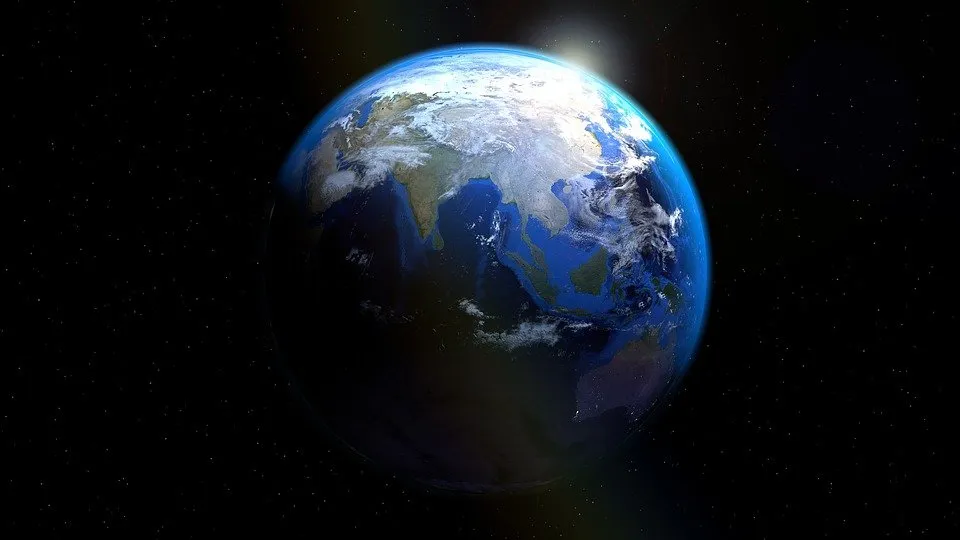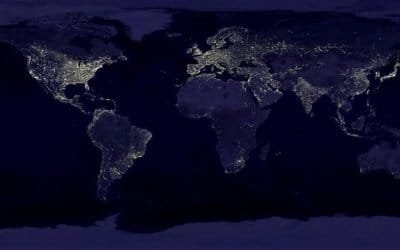Earth Day Is Worth Celebrating?
Why?
Our planet was formed about five billion years ago—a hunk of rock. By some means, perhaps deposited by meteors, primitive organisms arose. With the help of water, oxygen, and livable temperatures, life evolved in many forms and with increasing complexity. Homo sapiens arose only about 200,000 years ago as the species possessing the most advanced ability to grasp concepts and reason.
Human civilizations in the form of permanent settlements or cities began about 10,000 years ago, but survival was never easy. In the words of philosopher Thomas Hobbs, life in the seventeenth century (and actually long before) was “solitary, poor, nasty, brutish and short.” The fundamental problem was widespread lack of knowledge. Everything that made thriving possible had to be discovered.
There is much beauty in nature, but nature alone does not gift humans with plenty; there is only so much low-hanging fruit. There was no actual Garden of Eden to waltz around in. Until recently, the whole Earth was a very dangerous place. People suffered routinely from starvation, freezing cold temperatures, stifling heat, natural disasters, dangerous bacteria and viruses and assorted diseases, wild and ferocious creatures, various human enemies, and more. Suffering was normal. People engaged in elaborate rituals in a desperate attempt to placate the gods whom they believed controlled their fate.
It took centuries before people, guided by discoveries made possible by the faculty of reason, were able to discover the means to enable them to multiply and thrive on a large scale. Everything was discovered by thinking and innovating: agriculture and farming, fishing, hunting, raising livestock, biology, medicine, chemistry, physics, engineering and building, energy, transportation, capitalism, political science, courts of law, financial systems—and finally, the discovery of rights to protect people from each other. Only in the last 200 years or so has there been a major increase in life expectancy in the world.
Earth is just a place; it is not a supernatural organism that deliberately or consciously works to help us and therefore needs to be thanked.
Very often, Earth Day is used as an occasion to spread propaganda about how evil humans are and how critical it is to “preserve” the Earth. Consider how odd this is. We need to make nature—that is, Earth—serve our needs. What we do not need to do is worry about losing critical resources and preserving the Earth exactly as it always was with no changes.
To illustrate this, let us say there is evidence that we are running out of lithium, which is needed for battery production. How does capitalism work here? If there is a shortage, first, the price of lithium will increase. Second, because of the increase in price, producers will try to use less lithium. Third, miners will search for additional supplies, knowing they will be compensated well. Fourth, people will look for and create substitutes.
This example is not one of a kind. Note that the oil panic of some forty years ago led to so many new discoveries that the world was overwhelmed with oil. There are numerous experiments being conducted now throughout the world in a search for alternative sources of energy.
So instead of celebrating Earth Day, what or whom should we thank? Not nature, but the many thousands or millions of people who learned to understand and master it. We should celebrate Production and Discovery Day rather than Earth Day. Thanks to the triumphs of reason and science, the Earth can now support over seven billion people, despite the depredations of viruses and dictators. By the way: admiration of those who help master nature through production should include those who work to invent technologies to insure clean air and water. These are productive achievements. See the next chapter for showing how much our survival depends on power, especially the power provided by fossil fuels.





